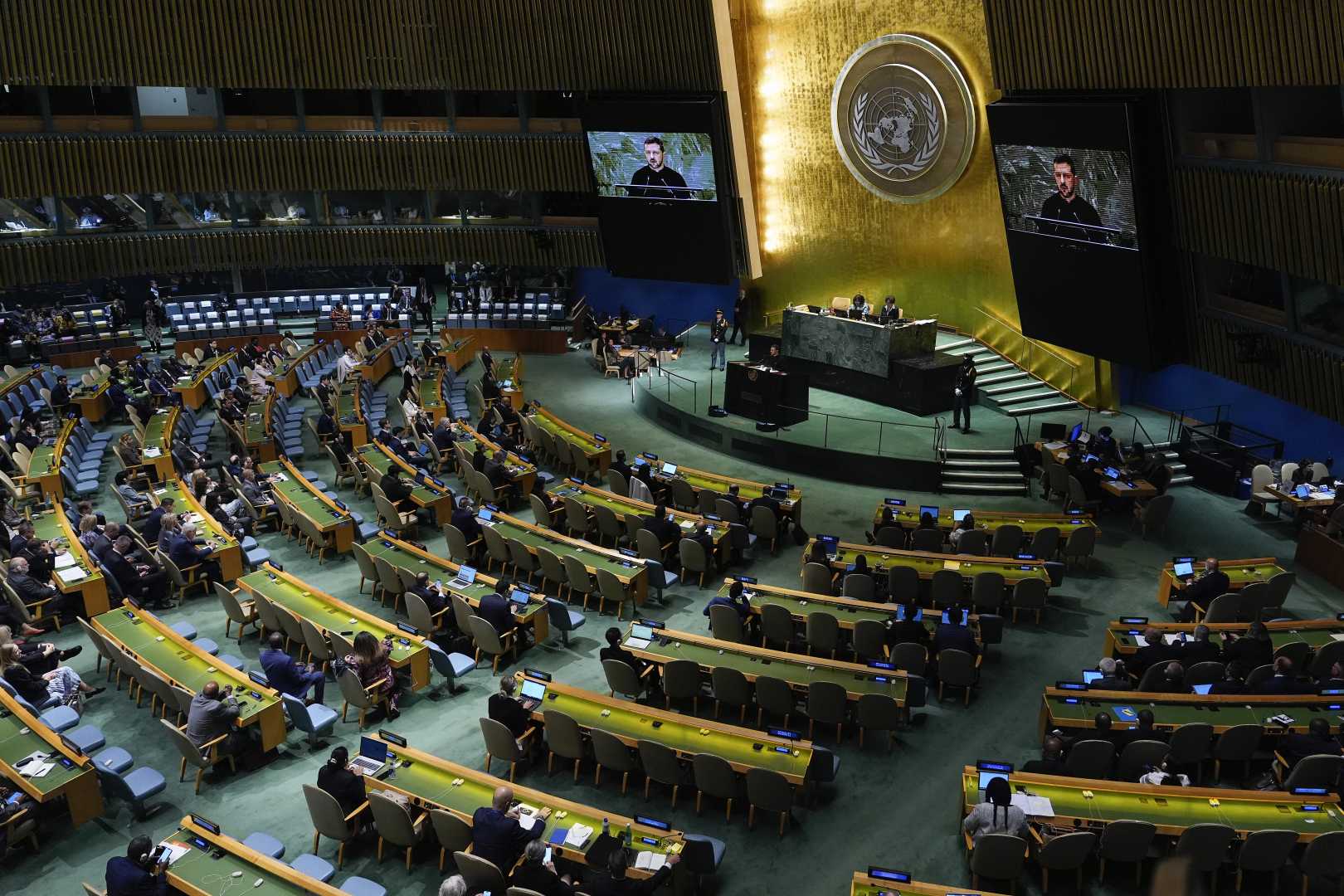World
US Splits from Allies Over Ukraine in UN Votes

UNITED NATIONS (AP) — The United States marked a significant shift in its foreign policy on Monday, choosing not to blame Russia for its ongoing invasion of Ukraine during votes on three U.N. resolutions, coinciding with the third anniversary of Russia’s military action.
During the U.N. General Assembly session, the U.S. aligned itself with Russia by voting against a resolution backed by European nations, which condemned Moscow’s aggression and called for an immediate withdrawal of Russian troops from Ukraine. Following this, the U.S. abstained from voting on its own resolution after European nations successfully amended it to explicitly designate Russia as the aggressor.
U.S. Deputy Ambassador to the U.N. Dorothy Shea stated, “What we need is a resolution marking the commitment from all U.N. member states to bring a durable end to the war,” emphasizing that previous resolutions condemning Russia have not halted the conflict.
The turning point in U.S.-European relations comes as President Donald Trump is exploring direct negotiations with Russia, a move that has raised concerns among Ukraine and its European allies who feel excluded from the discussions. Trump, hosting French President Emmanuel Macron on the same day, indicated optimism regarding the war’s potential resolution.
The General Assembly ultimately passed the Europe-supported resolution 93-18 with 65 abstentions, a signal that support for Ukraine has waned compared to previous votes where over 140 nations condemned Russian actions, demanding a withdrawal.
In contrast, the U.S. proposed a separate resolution that called for peace but did not reference Russia’s actions. This proposal failed to gain necessary support after France and others added amendments clarifying Russia’s role in instigating the conflict.
Ukrainian Deputy Foreign Minister Mariana Betsa asserted, “As we mark three years of this devastation — Russia’s full invasion against Ukraine — we call on all nations to stand firm and to take … the side of the Charter, the side of humanity and the side of just and lasting peace, peace through strength.”
Despite the setbacks, Shea described the passage of the U.S.-drafted resolution in the Security Council, which operates under legally binding mandates, as a “first step,” although it faced challenges as Russia vetoed amendments becoming legally binding.
While Trump expressed a desire for quick negotiations to end the conflict, some European leaders, including Macron, warned against accepting any terms that would compromise Ukraine’s sovereignty.
“This peace must not mean a surrender of Ukraine,” Macron cautioned, emphasizing the need for solid guarantees to protect Ukraine’s integrity.
The resolutions are seen as reflective of the deteriorating relations between the U.S. administration and its European allies, raising concerns about a united Western response to Russia’s actions in Ukraine.












